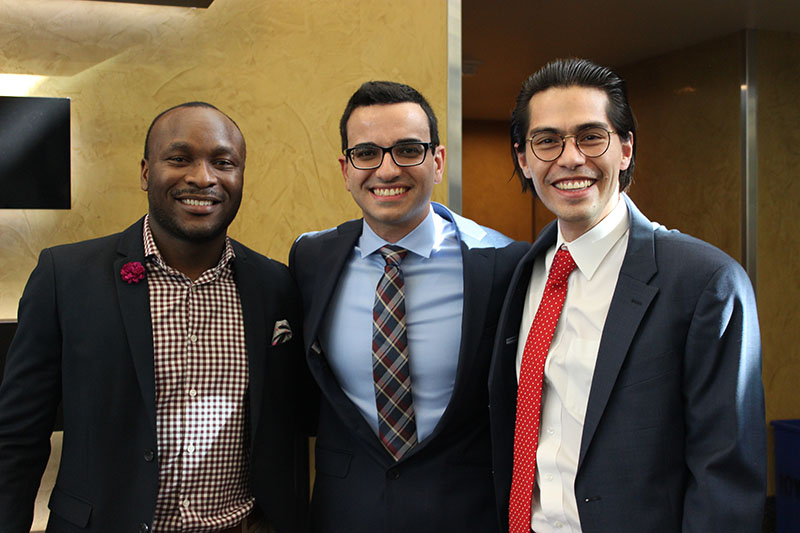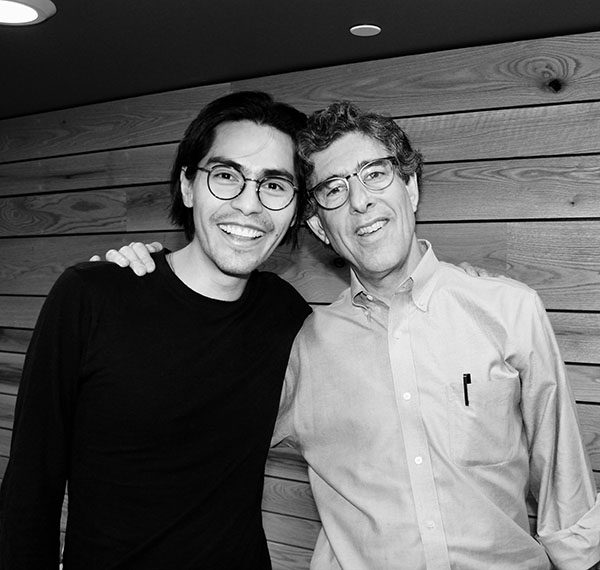Sergio Sánchez-Luna, MD, Assistant Professor, Division of Gastroenterology and Hepatology, Basil I. Hirschowitz Endoscopic Center of Excellence, University of Alabama at Birmingham
What were some of the projects you worked on while you were at Iowa and how did this work prepare you for your career?
One project that stands out during my residency was one that I did with Dr. Kyle Brown. She was a seminal influence on how to develop a research project from its inception, IRB writing, data gathering, submitting an abstract to a conference (we got a Poster of Distinction at DDW!), writing the manuscript, and eventually publishing it! These are skills that I continue to use on an everyday basis. She was there by my side on every step of the project and I am forever grateful for her kindness, support, and positive influence! Hereditary hemochromatosis: curb your enthusiasm!
What was most valuable to you during your years at the University of Iowa?
It is hard to point out one specific thing that was valuable to me during my training. Nevertheless, I rather see my years at the University of Iowa as a blend of remarkable experiences, collegiality, teachings, opportunities, and friendships that made my residency one of the most wonderful times of my life. At the University of Iowa, you not only get superb training but you make mentors and friends for the rest of your life.
What is one memory that stands out from your time at Iowa?
There is one in particular, of many, that I still remember very vividly. One night I was covering the inpatient Hematology-Oncology service as an intern and received a call from a nurse regarding one of our patients with a rare blood disorder that was bleeding from her eyes. I called my senior and fellow and both had no idea what to do next so I reached out to my attending, Dr. Bryan Link, who was on-call that night. It was like 2:30 A.M., so the first thing I mentioned to him was that I was “really sorry” to wake him up at that time of the night. He immediately responded: “Sergio, why are you assuming I was sleeping?” To date, I do not know if he was truly awake or not, but that phrase was so meaningful to me in the sense that he was there present to help me and kindly guide me in the care of our patient–no matter how late in the night it was.
What is something you learned at Iowa that you still use in your current role?
The value of teamwork and collegiality. If you trained at Iowa you know that the approach to healthcare and education is a comprehensive one. There is a ton of people (janitors, cooks, nurses, MAs, social workers, technicians, pharmacists, NPs, amongst many others) that allow us to do one of the things that we love the most: to care for our patients. Our work as physicians would not be possible without the collaborative work and kindness of all these amazing people. Also, collegiality is a core value of our Program. The friends and mentors you encounter, are people who will continue to care for you beyond your training.
How do you maintain a life-work balance in your current role?
To answer this question, I need to give a little bit of background that not a lot of people know. I was very fortunate to do a visiting research fellowship at the Center for Healthy Minds at the University of Wisconsin-Madison with Dr. Richard Davidson during my residency. Dr. Davidson is a world-renowned neuroscientist and a leading researcher on how to cultivate well-being and relieve suffering through a scientific understanding of the mind. He served as my mentor during my time there and one of the core values of his laboratory is that well-being is a skill that can be learned. There are some components to it–like awareness, connection, insight, and purpose–and this has become a constructive force in my life and well-being. I recently reflected more on this when I recently found out that the second most common cause of disability in physicians is depression. I was shocked by this and it made me reflect, once more, that we cannot postpone working on our well-being and that no one, but for us, has to do the job. Good news though, it’s a skill that can be learned! I am deeply thankful to the University of Iowa, Dr. Manish Suneja, Dr. Katie Harris, and Dr. Davidson for allowing this opportunity to happen.
Finally, I would like to thank my wife, my parents, and my siblings for always being present and for their extraordinary support and kindness, for which I will be forever grateful.









